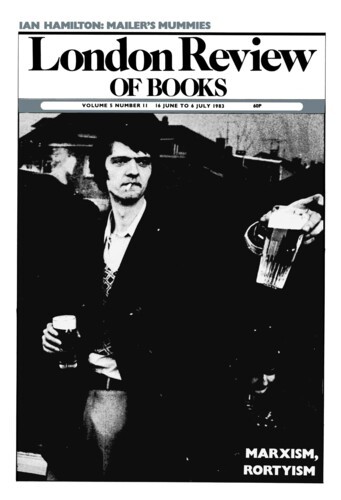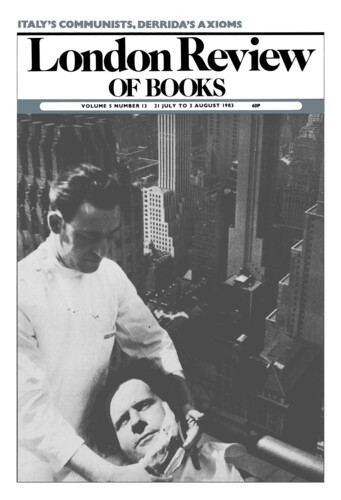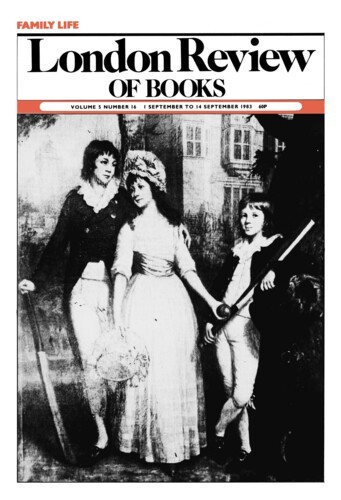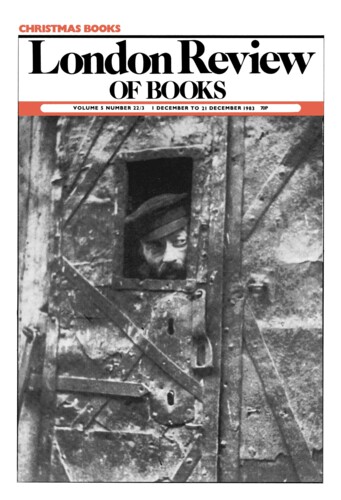Maids
Philip Horne, 1 April 1983
Lisa St Aubin de Teran’s The Slow Train to Milan and Clare Boylan’s Holy Pictures share a subject – girls growing up to a world whose language is new to them – which demands close attention to the register of words and sentences, a measure of novelty and an enactment of surprise. Many of their sentences glint with recognitions, giving back a fine pleasure out of the often painful misunderstandings and reverses they render. In their careful sense of a vanishing past, their evocation of innocences not quite departed with the loss of ignorance, the best passages of both books offer a firm, affectionate hold on formative passages of life.–





